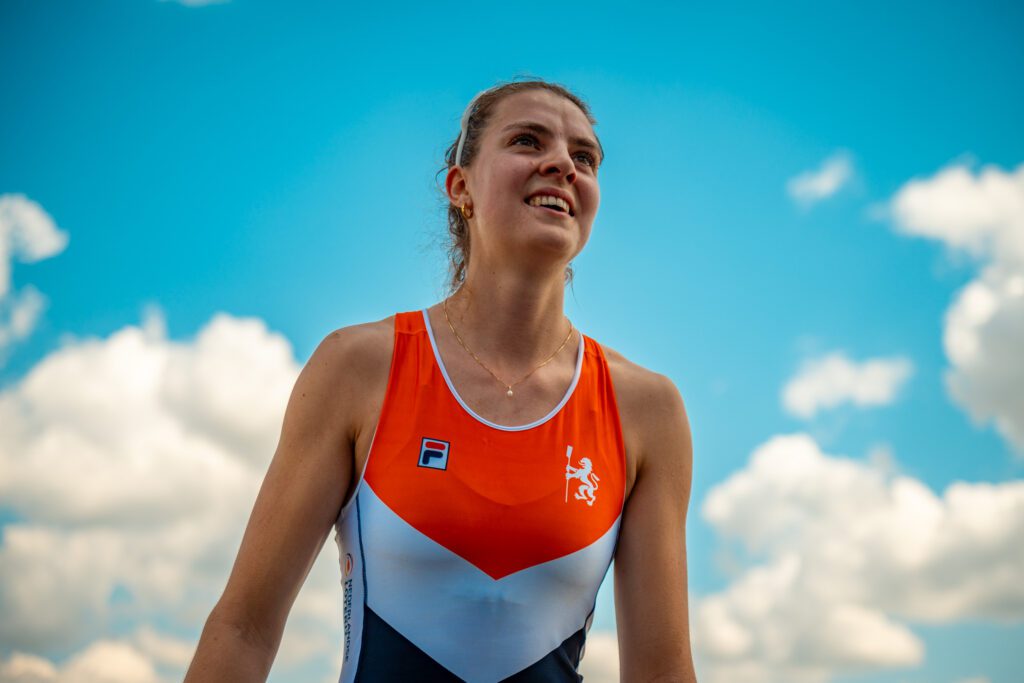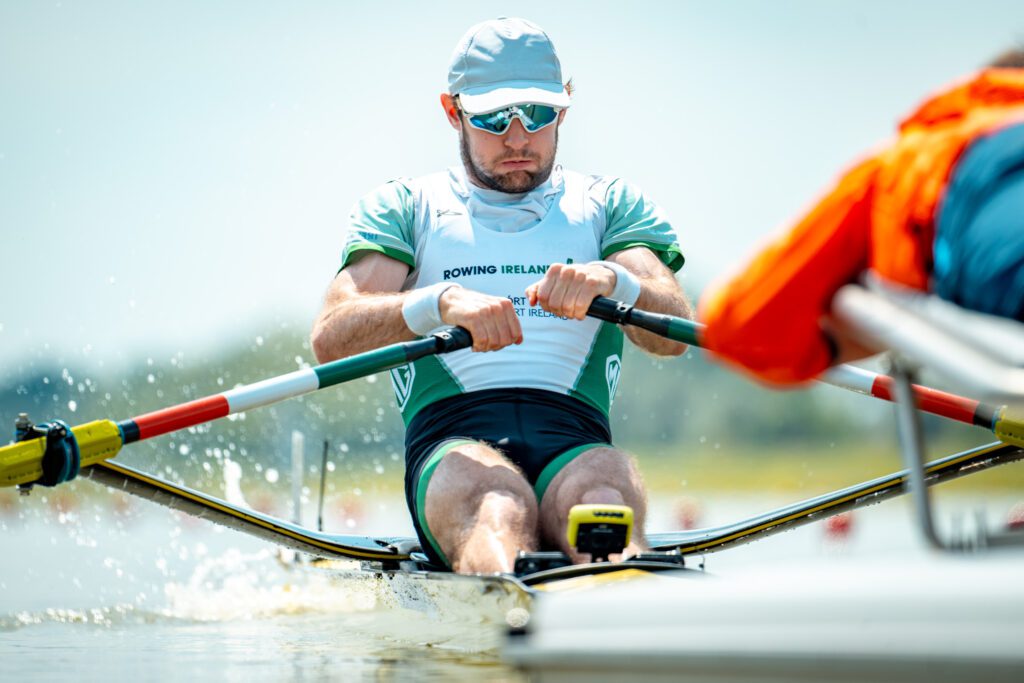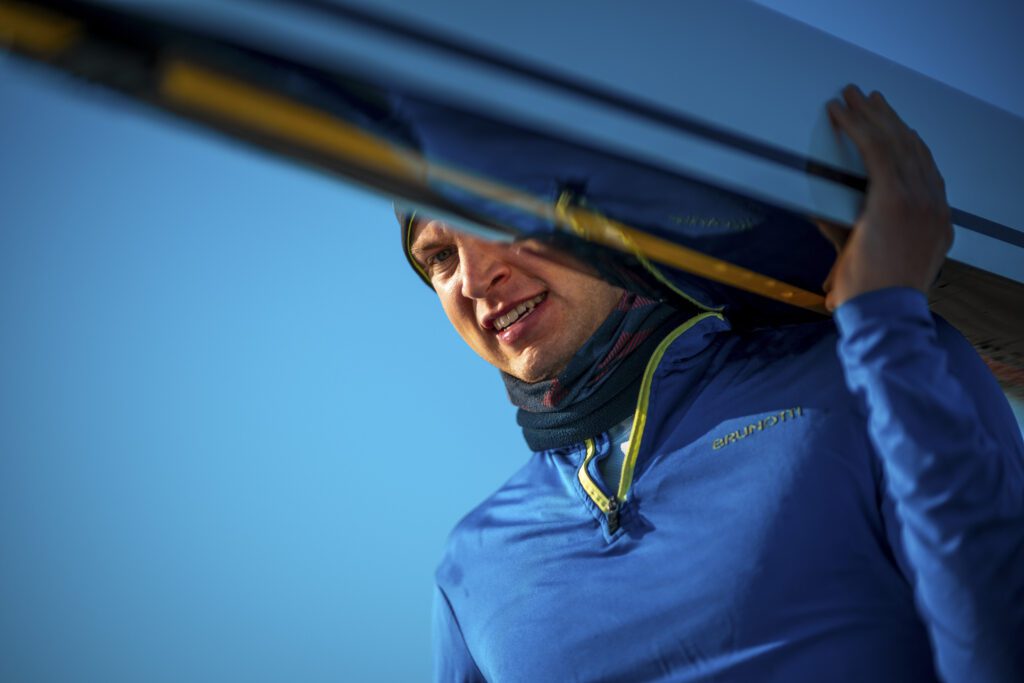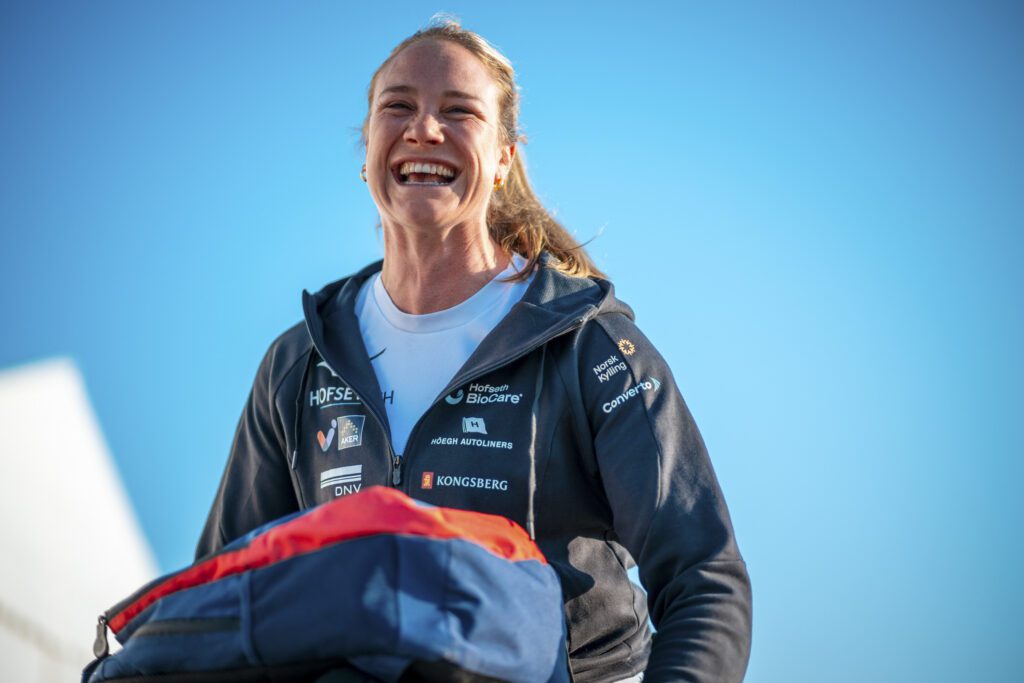The Monday schedule had been reorganised hastily on Sunday night, shifting preliminary races for five straight-final non-‘Lympic categories into Tuesday and cramming the rest into a rapid four hours of racing to avoid potentially unfair weather. During racing the wind behaved fairly well, in cooler conditions than had existed the previous day with frequent clouds scurrying across to blot out the sun. After racing both rain and sun took turns in what we are starting to see as typical Belgradian weather.
The first crew at the regatta to make a contested final was the French PR3 mixed double of Laurent Cadot and Elur Alberdi, narrowly beating Britain. They are reigning world champions, though the holders of the world best time are Aussies Jed Altschwager and Nikki Ayers, who won the other heat in a new world championships best time, so we’re gearing up for a tantalising final pitting the two against one another. They haven’t met in anger before, since the Australians weren’t in this event last year, so bets are on as to who will win, and it will be difficult for anyone else to get a look-in.
Neither of them claimed a Paris ticket though, because as a new event the PR3 double is the one Paralympic category in which fewer than six bag spots at the worlds, a bit like the eights in the Olympic events. So the final will be the decider, the race where athletes hope not to come last. However, an hour and a half later first Germany and then Britain booked their PR3 mixed coxed fours Games places, Germany finishing with confidence after a tight race against France and China, while GBR fought off a spirited effort from the USA then steamed steadily to the line without stress. All six mixed fours A-finalists qualify for the Paralympics, with only two more places allocated in late qualifying.
A little on Sunday and more on Monday some combinations have showed an intriguing new turn of speed. Amongst them are the French men’s four which has gone up a gear since their world cup series racing, while the reselection which has seen Ireland’s W2-, W2x and W4- athletes reorganised seems to have been good for all three crews, with second, first and third respectively in their heats and promise of more speed to come. Their best performance was from Zoe Hyde and Alison Bergin, who owned the first W2x heat confidently clear of Lithuania, but the Irish four also qualified for the semi-finals. The France turn-arounds have been slowly increasing momentum, a combination probably of Paris home Olympic allure improving training, and quite possibly the effect of Jürgen Grobler’s training advice beginning to take effect.
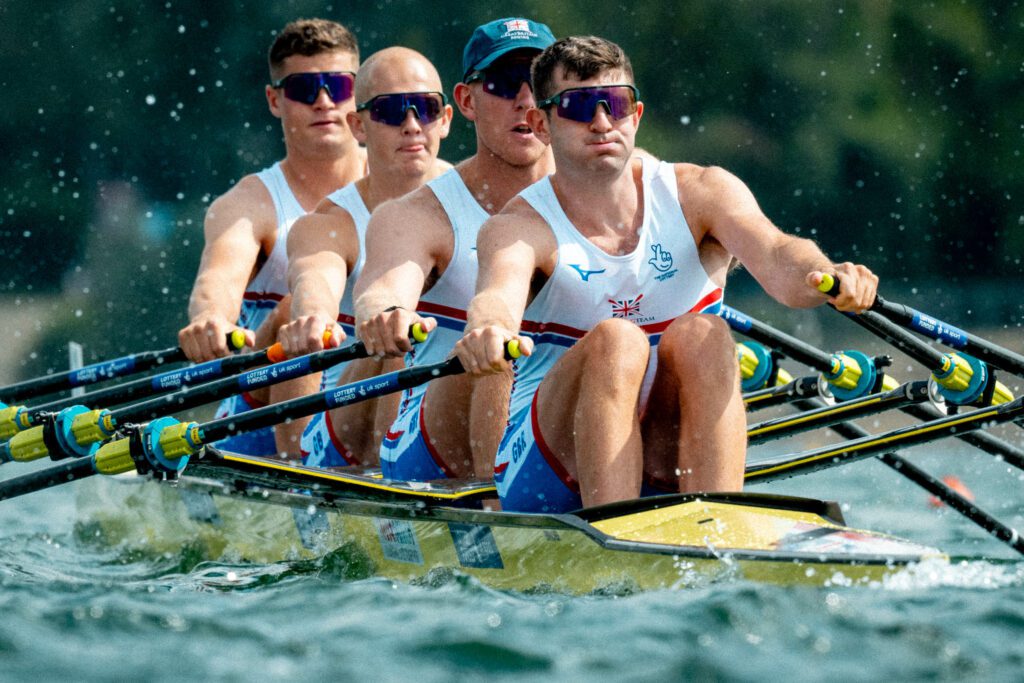
Photo Slightly trickier conditions for racing during the heats on Monday
Credit Benedict Tufnell
There were more cautious savings of energy by crews in heats on Monday, not because the conditions were bad — they turned out surprisingly well in the end — but because more of the reps are lurking on Tuesday. Some pushed their effort all the way, particularly the top lightweight women who rarely spare themselves even if they know they’re going through, but many others cruised as soon as it was obvious who would qualify to the semi-finals.
In the afternoon things suddenly turned very serious, with Turkey, China and Angola the first to lose racing crews off the Paris and medal pathways as Bruno Cetrario Berriolo won the first repechage of the regatta to put himself into the men’s singles quarterfinals. He nearly didn’t manage it as Cevdet Ege Mutlu (TUR) came back from a five-second deficit at 1500m to force a near photofinish at the line, but the Uruguayan just managed to hold on in a breathtaking sprint from both. He was joined by the other seven repechage winners, notably Monacan Quentin Antognelli, who finished 15th at the last Olympics, and Portugal’s Andre Pinto who came fourth at the under-23s five weeks ago.
There was also a top-24 qualification for the new Spanish single sculler Gonzalo Garcia Ferraro who was a sweep under-23 and finished in the top 12 at two of the three world cups in this, his first sculling season, while the last repechage was won by clear water by a heavily relieved Kjetil Borch, who managed to get past the attack of early leader Dani Fridman. The rest of the repechage racers booked themselves into the E/F/G/H quarterfinals, where we can expect more ferocious competition from those who are likely to meet over the next few months in continental qualifying contests, setting down early markers.
The women’s singles reps were the more relaxing two-through format, which certainly took the pressure off the top six to get through. The same was true of the lightweight men’s singles reps, with only three to go to the E-final, and there were big gaps too between qualifiers and non-qualifiers in the men’s pairs and lightweight men’s doubles solo repechages. One of the men’s doubles reps was a corker though, Cuba and Bulgaria holding off a massive charge from Uruguay’s under-23 young guns who closed the best part of two lengths in the last few hundred metres. Across the whole day there were mixed fortunes for entrants under the Individual Neutral Athlete banner (AIN), with Kira Yuvchenko getting through in the W1x but Alexander Vyazovkin twelve seconds behind the USA’s M1x qualifier Eliot Putnam.
Tuesday has the remaining heats, from the postponed test-style preliminary races for five of the non-Games events to some hotly contested Paralympic singles, doubles and the Olympic eights. We are also expecting some rather brutal crew-boat repechages. More showers are predicted, but low winds.
